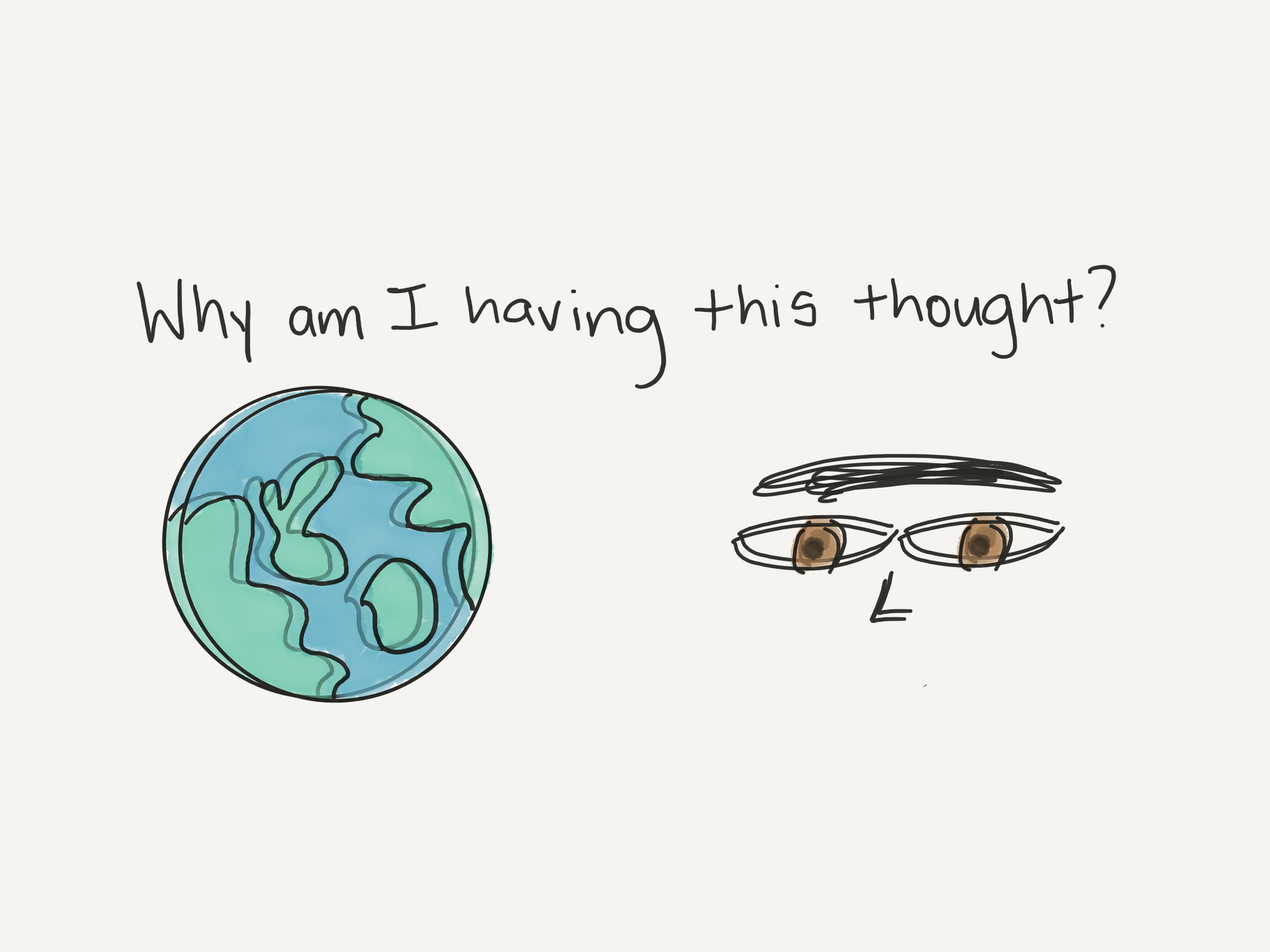Think you're always right? Answering these 4 questions will show you otherwise

Your brain is playing a continual trick on you. Every thought you think, your brain believes it's true.
This isn't a bad thing. It's efficient. But sometimes it pays to see how quickly your view of the world can change.
You can practice by going through these steps every time you think something.
- Is this true?
- Is this really true?
- What does believing this thought do to my experience of reality?
- Who would I be without this thought?
- List the opposites of your initial belief.
Let's try.
I was at Jiu Jitsu the other night. We were wrestling and I put my opponent in a foot lock. I pulled it on tight and he started yelling at me. I let go of his leg and he started speaking.
"If you foot lock me again, I'll punch your lights out."
Usually, if something hurt, you would tap and the other person would stop. I didn't feel him tap. I told him.
He never admitted that he did. But I could feel he didn't want to. I'm a white belt and he's a blue belt.
My mind started thinking, his ego was holding him back. Instead of tapping, he decided to tell me I was doing something wrong. He didn't want to let a white belt tap him out. He had to resort to threats to prevent his ego from being damaged again. I thought I was doing everything right.
Is this true?
Was I really doing the right thing? Did it matter what colour belt I was? Was my foot lock secured correctly?
Is this really true?
What if he did tap, I just didn't feel it and continued to put the foot lock on? And his outburst was warranted because I could've injured his leg.
What does believing this thought do to my experience of reality?
If I believe I'm right, I see this person as someone I don't want to spend time with. I see this person as an enemy.
Whenever I walk into the gym and he's there, my thoughts will immediately default to negative.
My practice may be negatively influenced because I'm focused on me being right and him being wrong.
Who would I be without this thought?
This is a powerful one. Because it questions your identity.
Without the thought of me being right, I'd be someone who practices Jiu Jitsu, accepts they might be wrong, accepts the feedback and continues to practice.
Without the thought of him being the enemy, I can continue to train without the negative memories of the event.
I'm a better person when instead of believing I'm right and he's wrong, I remove the thought and focus on improving.
List the opposites of your initial belief
This can be hard. How often do you hear someone admit they may be wrong? Or even harder, are/were wrong?
He did tap adequately. I held the foot lock on too long and could've hurt him. His ego wasn't the problem, it was the potential of getting hurt and not wanting to get hurt in a future session with me. He needs his legs in working order to earn a living for his family. That's why he's cautious of injury.
You can start to see how a single thought can be unwound.
It doesn't mean you have to agree with your answers to the questions or listing the opposites. But it pays to take them into consideration when moving forward in the world.
Instead of being a prisoner of your mind, believing everything you think, you can pause, and then go through the practice.
I used Jiu Jitsu as the scenario but you can apply it to anything.
What if the person who cut you off this morning is on the way to visit his wife in hospital?
What if you’re the inconsiderate one?
What if your snappy colleague's child is sick? And they were up all night taking care of them? They're sleep deprived but they still manage to show up to work.
Would you be a better person if you started to understand the other side's way of thinking?
Your view of reality is different to the view others have. Everyone thinks theirs is the right view. Including me.
Asking myself, "Why am I having this thought?", and going through the questions above has helped me to see what others might be looking at.
